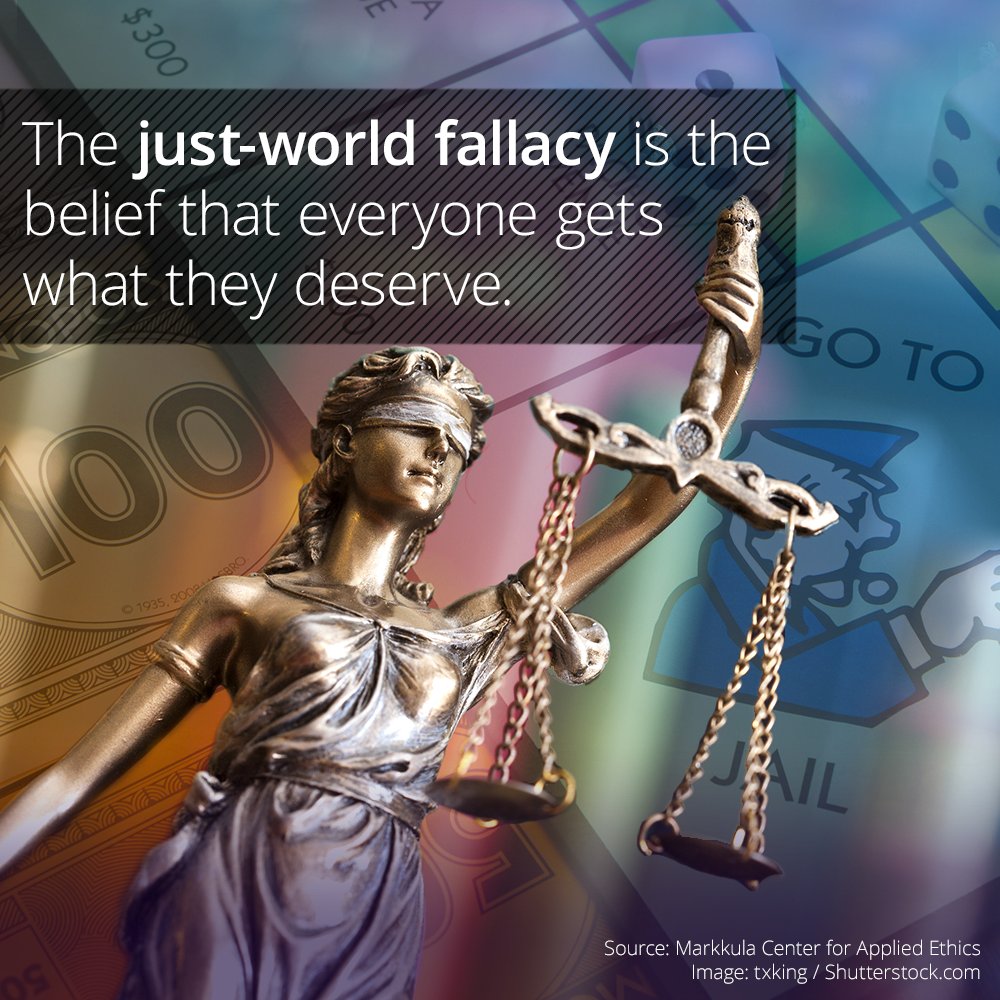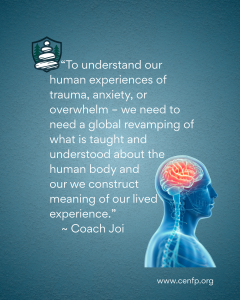
Unpacking the ‘Just-World’ Fallacy
How to understand the lack of fairness and justice for victims of abuse

The idea of the ‘Just-World Fallacy’ stems from a belief that the world is generally good and fair, and people get what they deserve. This belief holds that actions have consequences in alignment with ethics and morality. Thus, when bad things happen, there is reason to believe that the bad is deserved because of something the individual did to bring it upon themselves.
The problem with this mindset is that a victim of abuse or other injustice is often blamed for the husband’s abuse in the marriage — as if they are at fault. We hear this all too often in narratives such as “she must have done something to deserve it” type of statements.
Problematic Outcomes from this Ideology
The just world fallacy has several problems. Let’s unpack a few.
- Control: In a world where the focus is on control, this mindset caters to those who abuse control. Abuse of control has components of power usurpation, rather than mutual and beneficial control over shared resources. This stems from many of the patriarchal or misogynistic narrative holders. This type of control is at the expense of others. It does not provide order or predictability; rather, it is chaotic and pain-inflicting.
- Failure to empathize: Thinking that life delivers what is deserved dismisses the reality that there is evil in this world, even evil cloaked in a suit and tie on the pew at church on Sunday. Victims of evildoers who are not believed are left not only blamed for what they did not do but also ostracized and mischaracterized by the crimes of the person who should have been the closest to and most protective of them.
- In addition, the lack of empathy of abusers is a key character trait deficit, evidenced by their lack of care for the impact of the harm they commit in their abuse.
- Reality distortion: If the above two points are true, it is easier to believe things happen for a reason. Thus, distancing oneself from suffering individuals and from any offering of care and human social responsibilities is a type of mind-blindness that leads to accepting the facade of abusers presenting as good-guys.
In summary, rationalizing justice is a self-deception and a conclusion error in the way we make sense of life. We do not blame women assaulted by men for the assault based on their location or clothing, and yet, this ideology has roots in this type of thinking.
Karma
Another idea is that you get what you put out into the world. If you sew good deeds, you will reap good. This idea is a bit easier to swallow because of the hope that if you are a bad person, Karma suggests that eventually justice is served for the inflicted harm.
Retributive Justice
Another lens is that of retributive justice. This idea focuses on the committed act and harm caused, where a system, such as the church or legal system, ensures the punishment is commensurate with the committed crime. The problem here is that there is an over-reliance on an external authority to ensure not only enforcement, but the appropriate adjudication of the acts committed.
What most wives of “Targeted Partner Abuse©” understand is that we are operating in a morally bankrupt legal system where family law intersects with abuse by a husband. Many women’s lives are destroyed in laborious court proceedings and from court-ordered injustices, enabling men to achieve better outcomes than the victims they have abused.
Deterrence, not just Punishment
What we wish for is an assured deterrence from any future harm and abuse. The hope of fairness has long since faded, as we’ve learned from sad experience that after all of the abuse in the marriage, divorce and separation will often bring more pain.
Supernatural Punishment
When all else fails, there is at least some low-level prayer that God will get them in the end. Somehow, some way, the hope here is for the transgressors and traitors of our marriages to meet an eternal judge where wrongs will finally be righted.
Aversion to Inequity
Our social belief in fairness has lifelong roots. We are taught to share, to treat one another equally in childhood. Most human beings grow up with a common belief in fairness, and right and wrong social interactions. Most of us would agree to a sense of felt injustice when we are wronged.
Inequity is not valued in any of our social systems, in marriage, in a caste mentality, or in any ‘ism’ construct that creates a divisiveness.
Response to inequity runs the gamut from private emotional distress to taking matters wrongly into individual hands. People often feel so helpless when wrongs are committed without appropriate consequence and punishment.
Constructive Fairness Building
As women living with or who have previously experienced ‘Targeted Partner Abuse©’ more often how we stabilize the tension with unfairness is in the way we build forward our own safety measures.
Constructive thinking – after you have given yourself the necessary time to feel feelings, honoring the truth, not the abusive narrative of your abusive spouse, it is necessary to do what you can to adjust the psychological and emotional load of the injustice you experienced. This is partly accomplished by slowing down the unproductive rumination and reframing the situation. You did not cause this, but only you can make the necessary thought changes for how to endure it in a manner that will not put you into unhealthy and unproductive thinking error loops
Social validation – being seen and heard is an important part of being able to constructively move forward. We all need someone who hears how heavy our load is that we bear. This is the problem with social bystanding. It sends the message that what you are experiencing does not matter. You just need to get over it. While that is true to a point – we do not get over it by pretending, ignoring, or stuffing – we get over it when we have social contacts to carry us while we are doing our reframing construction work.
Accepting responsibility – this is one of the most difficult things to do. The truth is, no one can fix it. Even the most repentant and corrected abusive husband cannot undo what was done. The injustice is that you, as a victim of someone’s targeting, will carry this burden until the mental and emotional weight shifts and it is not as difficult to bear. It does not go away – it just redistributes in weight-bearing strain.
Sitting in the Pain
At Center for Peace, we offer our deepest and most heartfelt condolences for what you have endured. The wrongs committed against you – no matter the degree or severity – as each wife’s story is riddled with unimaginable pain. We know this place. We have walked it ourselves. We are here waiting to walk alongside you so that you do not have to walk alone.
Often, there aren’t ways to fix what you’ve been through. There are ways forward or out for you to choose, as we’ve addressed above; they come with challenges as well. We are here to walk alongside you in these decisions.
Center for Peace is a place where you will be treated with the dignity and respect you did not receive in your relationship, or often in your churches, where you should have been cared for and shepherded.
If we could fix, undo, and change the legal system and the mental health system, we would. We want all women to be loved and valued. We want a world where no young woman entering marriage is met with the lies, deception, and coercion we have faced. Our mission is to continue to make the changes that we can. In the meantime, if you are struggling to hold onto the injustice of your experience right now, please join our drop-ins on Monday and Thursday. (Links are on the website.)
We look forward to the associations we can build together.


